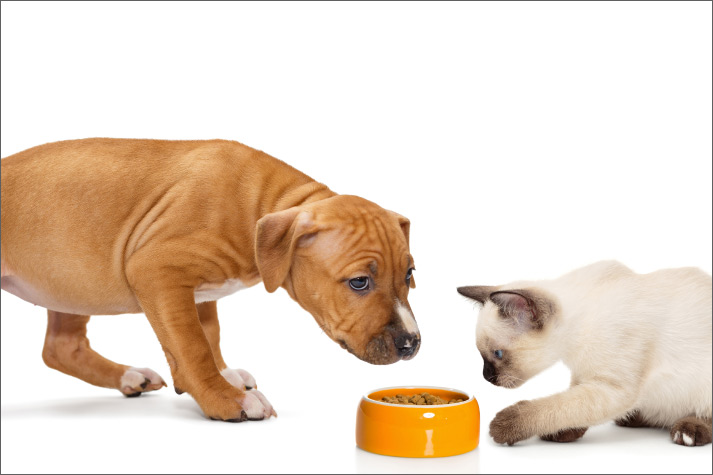


08 Oct
As pet parents, one of the most important choices we make is related to the food we feed our pets. Whether you have a dog or a cat at home, a well-balanced diet is the key to a healthy and happy pet. This handy guide breaks down the basics of pet nutrition, helping you choose the right food to keep your pets in the best shape possible.
Dogs are omnivores, which means they thrive on a mix of plant and animal foods. To keep them healthy, their diet should contain the right blend of nutrients. When choosing dog food, aim for one that contains high-quality ingredients and a good balance of these nutrients.
Cats are mostly carnivores, meaning they rely on meat to meet their nutritional needs. Their diet should be packed with animal-based proteins to keep them energized and healthy. Offering a meat-heavy diet will help ensure your cat gets the nutrients they need to thrive.
Here are the key nutrients cats require:
Whether you're shopping for dog or cat food, quality should always come first. Here's a few things to look for:
Some pets may have special dietary requirements based on health issues such as allergies, obesity, or chronic conditions like kidney disease or diabetes. If this applies to your pet, consult your veterinarian to find the right food for their unique needs.
Understanding pet food labels can help you make informed decisions. Here’s what to pay attention to:
Some pet owners prefer to prepare homemade meals for their pets, believing that fresh ingredients are healthier. While it’s true that home-cooked food can be nutritious, it’s essential to ensure that it contains all the necessary nutrients in the right proportions. Store-bought pet foods are formulated to be nutritionally complete, meaning they meet your pet’s daily requirements. If you decide to make homemade food, consult with a veterinary professional to ensure your planned diet meets all your pet's needs.
Sometimes, pets may need supplements to address specific health concerns or nutritional gaps. Before adding any supplements to your pet’s diet, it's important to get advice from your vet. Over-supplementing can be just as harmful as not getting enough nutrients, and such requirements vary wildly from pet to pet.
Giving your pet the right nutrition is one of the best ways to keep them healthy and happy. By understanding the basics of dog and cat nutrition, you can make informed choices that ensure your pet is getting everything they need from their diet. Remember that every pet is different, so it’s always a good idea to talk to your vet before making any significant changes to their diet. With a little attention to their diet, your pets will be well on their way to living a long, healthy, and joyful life.

AUTHOR’S BIO
ARSH BHARDWAJ
I am passionate about language, storytelling and the human urge to connect Having paid close attention to marketing and branding as a craft for some time, I'm eager as ever to indulge my passion for prose.